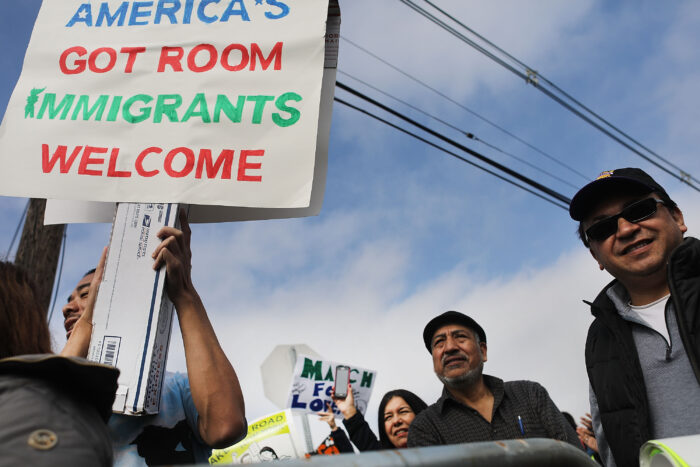
Role of nonprofits in solutions for welcoming communities • Indiana Capital Chronicle
“Never, never be afraid to do what’s right, especially if the well-being of a person or animal is at stake. Society’s punishments are small compared to the wounds we inflict on our soul when we look the other way.” Reverend Doctor Martin Luther King, Jr.
Those words from Dr. King are watchwords for any nonprofit whose aim is social welfare or social justice. While often criticized, nonprofits are the ethical watchdogs of society. As such, our job as leaders of nonprofits is to call out injustice and make corrections. Too often that’s done with rancor, divisiveness, and judgement. The core of the Greater Indianapolis Multifaith Alliance is civil dialogue – we can disagree and do it with civility, integrity, and kindness. Most importantly, civility takes empathy, a willingness to acknowledge the humanity in others and the ability to listen beyond the walls of our own opinions and those who agree with us. The current rhetoric clearly indicates that this is hard, or so it seems.
My mother used to say “it’s just as easy to be nice as it is to be mean.” She was right. Being kind takes very little effort, just a decision. Nonprofits can play a role in creating solutions that ensure our communities are welcoming, especially for immigrants. Immigrant Welcome Center is one such local nonprofit — through its role as a convener, and trusted services provider.
Immigration is a flashpoint and a divisive issue. The tropes and misinformation are so rampant that it’s difficult to tell truth from falsehoods. In my role as board member of Immigrant Welcome Center, I’ve learned that if we can remove agendas, there is data. Data has no agenda and isn’t partisan (although the researchers may do both). And if we leave the interpretation of data to experts and pundits, we miss our chance to interpret ourselves.
Here are some examples from the American Immigration Council that shine a light on the chasm between reality and misinformation:
- Myth: Haitian migrants living in Springfield, Ohio are in the United States illegally.
- Fact: Most Haitian migrants living in Springfield are living and working there legally under Temporary Protected Status. The U.S. government issues TPS to certain nationals whose countries are experiencing ongoing turmoil that makes their return dangerous or impossible.
- Myth: Immigrant workers displace U.S. workers and reduce wages.
- Fact: Immigration benefits American workers, correlating to more jobs and higher wages for U.S.-born workers. Immigrants in Indiana are vital to the state’s economy. They make up over 7.9% of the labor force, accounting for 9.6% of entrepreneurs, nearly 13.5% of STEM workers, and 19% of postsecondary teachers in the state.
- Myth: Crime rates go up when immigrants move in.
- Fact: Immigration is associated with lower crime rates, making communities safer. Immigrants are also less likely to commit crimes than native-born residents.
As the grandson of immigrants, I know these same types of arguments were made against allowing my family to immigrate to America. It was people of good conscience who spoke up in support of my family. In her book “Sum Of Us,” author Heather McGhee writes that America has a predominant zero-sum mindset. Essentially, if I let you have something there won’t be enough for me. And there are those who foster this mindset to keep us in fear of “the other.” If this was the case, I wouldn’t be here, nor would most Americans whose ancestors would still be living in their countries of origin. Most of those same ancestors likely saw the Statue of Liberty, “Give me your tired, your poor, your huddled masses yearning to breathe free.”
We can decide to live in fear or not. We can heed Dr. King’s words and stop inflicting our souls by looking the other way when we see injustice. Being kind as a member of a community with diverse neighbors only takes a decision.
Nonprofits such as Immigrant Welcome Center and others—those who work with our immigrant neighbors are committed to not only serving them, but also ensuring that the general community and decision-makers are informed of facts. At no other time has this been more relevant and critical.
YOU MAKE OUR WORK POSSIBLE.

